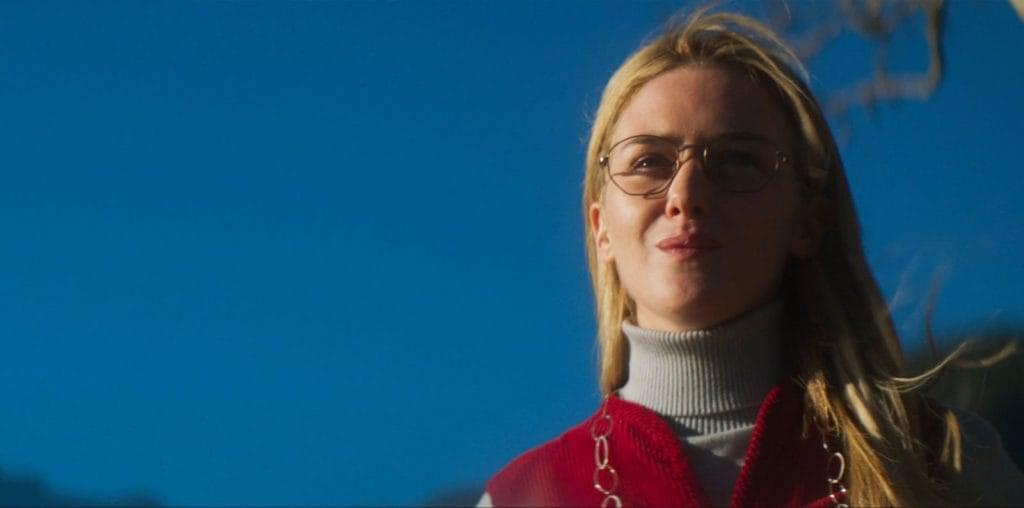
Theo (Henry Lloyd-Hughes) is obsessed with a webchat girl, who doesn’t share the same feelings he does. Jade (Vanessa Kirby) is a twenty-something woman who shares a flat with her mother. Both suffer from insomnia, and both live across from each other in separate buildings. One evening, Theo sees Jade head to the roof of her building and, fearing this woman he doesn’t know might be attempting suicide at such a late hour, rushes to stop her. The two insomniacs meet, and bond over their shared plight.
And that’s about as deep plot-wise as Charles Chintzer Lai’s short film Insomniacs goes, but that doesn’t mean the film isn’t interesting. Instead of getting terribly morose and melodramatic (though the opportunities abound), the film instead focuses on the shared experience between Theo and Jade. Neither will solve the other’s problems in one evening; neither really tries.
Thus the film is visually melodic in its portrayal of these two damaged souls as they drink and smoke and relate to one another. Again, the narrative could push any number of tried-and-true dramatic agendas and become cliché for its effort, but it saves itself from such a fate.
Visually the film employs some subtle stylistic touches that give the impression of the distracted and fractured head space that can occur when sleep eludes you, but it doesn’t distract away from the rest of the short’s developments. Instead it works much like the occasional moments of music does; you recognize the impact and flourishes, but they rightly exist as gentle enhancements instead of giant, flashing “look at me” signs.
Ultimately, Insomniacs works mostly for all the choices it doesn’t make, and the one big choice it does. Sticking with the power of the moment, and the way our leads relate to one another, lifts the short above all else. Had it turned into a mini-therapy session between two strangers, with Theo talking about his webchat embarrassment and Jade complaining about her mother, it’d feel routine. Instead, those moments prior to their meeting expand their characters and allow us to know what’s bubbling under the surface, motivating them to connect, without becoming the focus of the short’s narrative. We know what they won’t say, and it allows it to remain unsaid without leaving us confused or apathetic.
This film was submitted for review through our Submission for Review system. If you have a film you’d like us to see, and we aren’t already looking into it on our own, you too can utilize this service.

